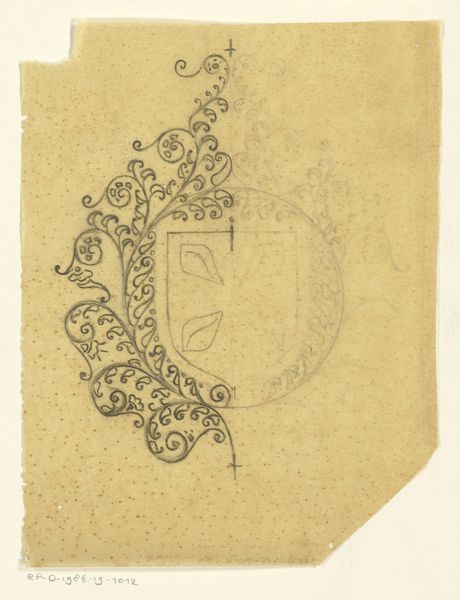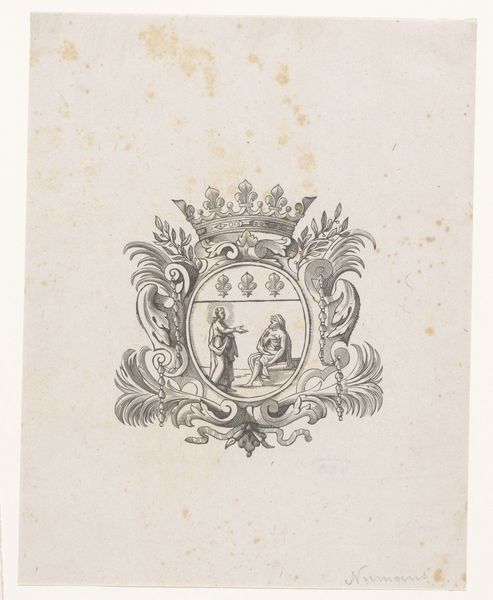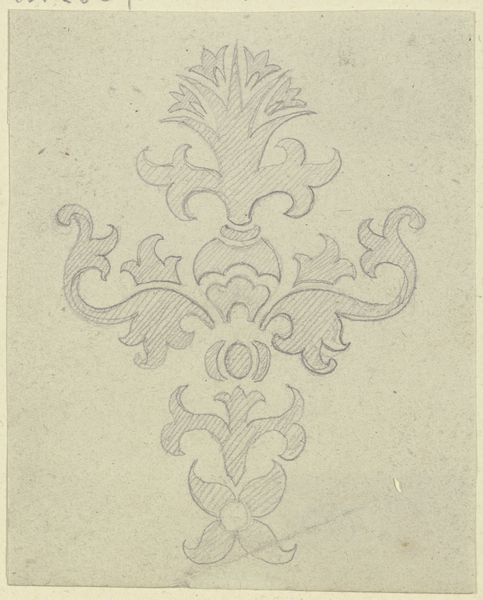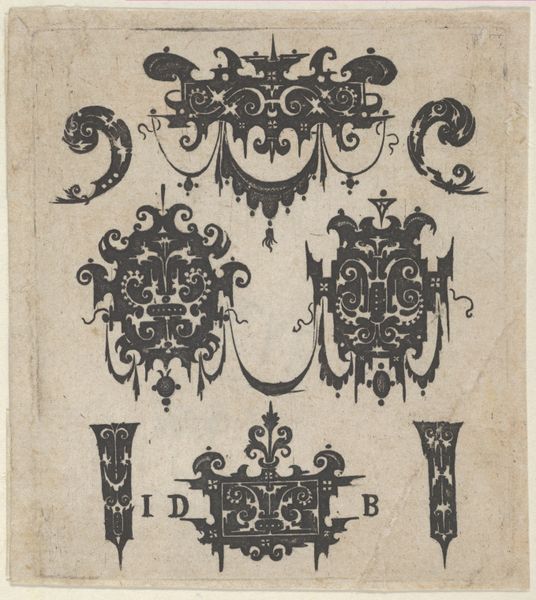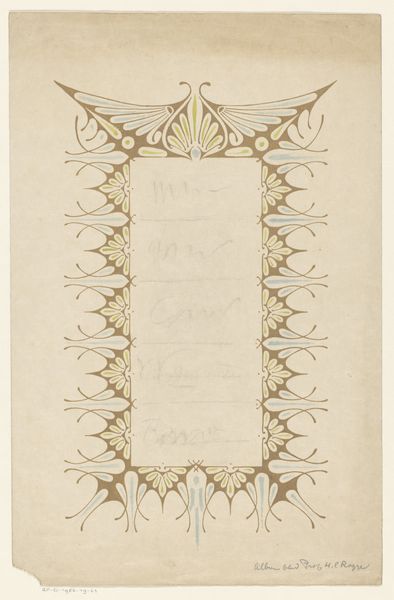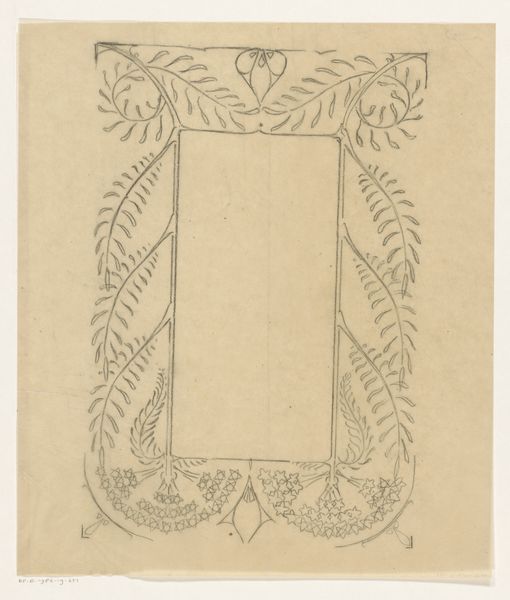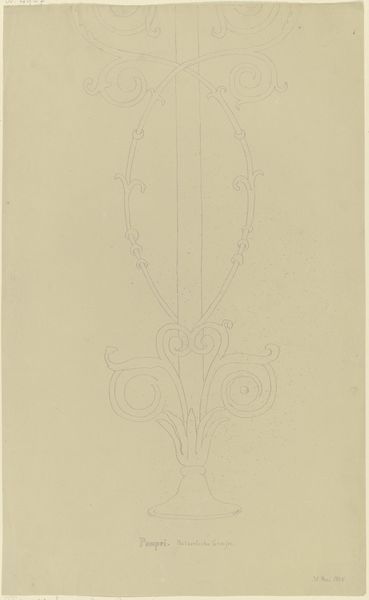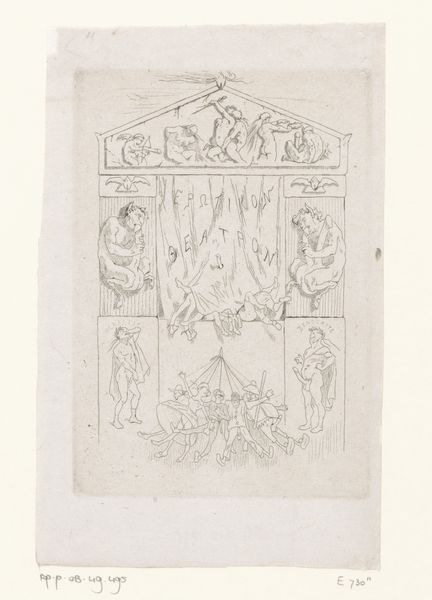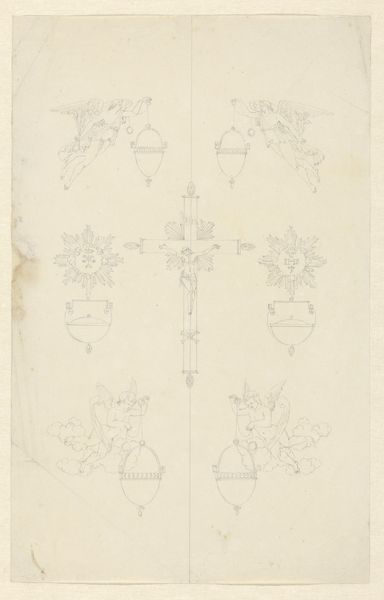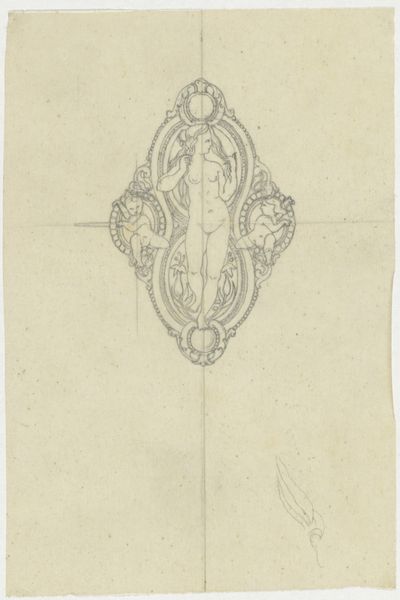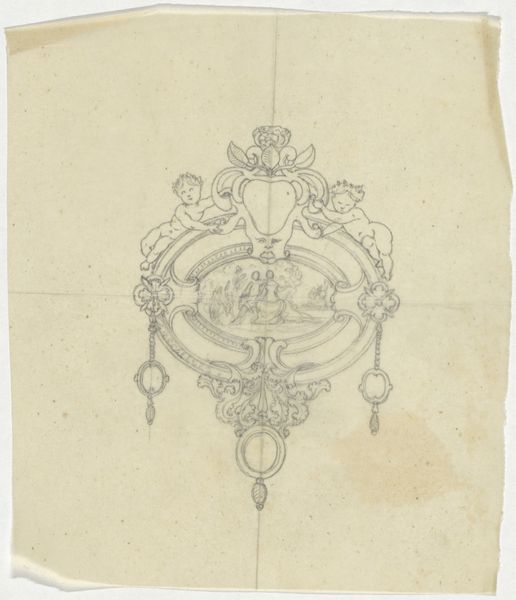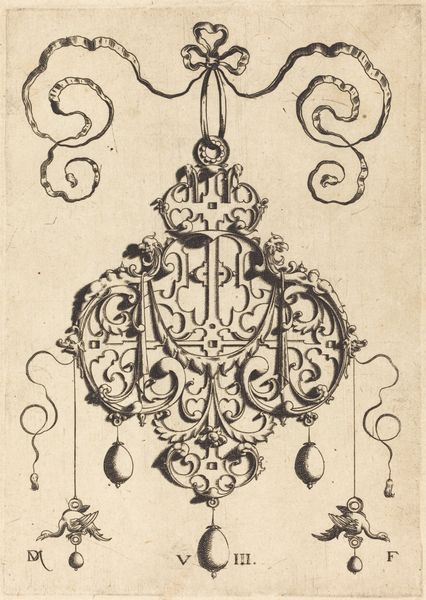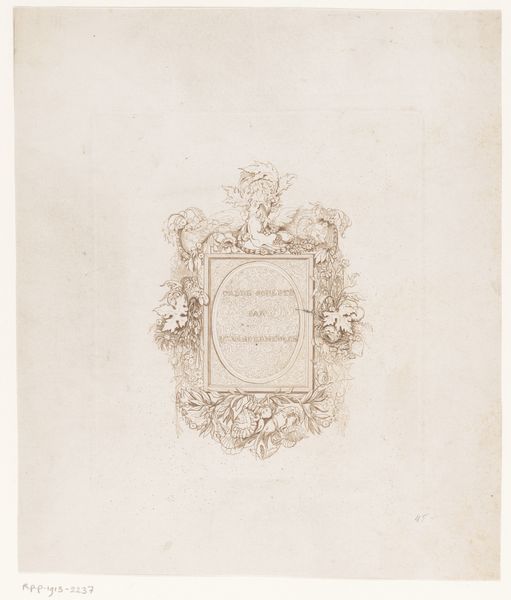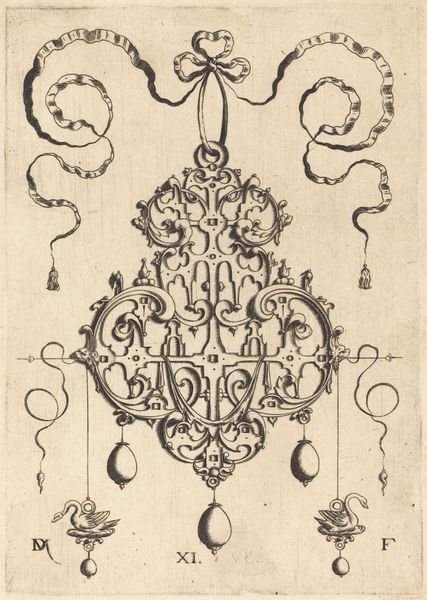
drawing, pencil, graphite
#
drawing
#
form
#
geometric
#
pen-ink sketch
#
pencil
#
line
#
graphite
Dimensions: height 203 mm, width 148 mm
Copyright: Rijks Museum: Open Domain
Art Historian: Editor: So, this drawing is titled "Wapen van Hilversum met bloemornamenten," which translates to "Coat of Arms of Hilversum with floral ornaments". It was created in 1924 by Reinier Willem Petrus de Vries using graphite and pencil, among other media. It strikes me as quite delicate, almost like lace, though grounded by the symmetry. What catches your eye? Art Historian: Well, the immediate thing that grabs my attention is how this piece blurs the lines between functional design and pure art. This isn’t just about aesthetics; it's about the material construction of civic identity. The floral ornamentation framing the Hilversum coat of arms – what does that tell us about how the artist, and perhaps the community, viewed their relationship to the land, to resources? Do you see this piece as merely decorative or is it a symbol laden with deeper meaning about production and value? Editor: I hadn’t thought of it that way! I suppose the choice of floral motifs implies a connection to nature, but how does that relate to material culture? Art Historian: Think about where floral designs usually appear: textiles, ceramics, wallpaper, and so on. Bringing that sort of imagery to a formal coat of arms democratizes it. It ties Hilversum not just to nobility or governance, but to the daily lives of its inhabitants, their consumption and craftsmanship. How do you think the choice of graphite, a relatively common material, adds to this message? Editor: Interesting. Graphite is accessible and doesn't hold the same hierarchical associations as other art media like oil paint. The sketch quality makes the object feel less official, more relatable. I never considered how the medium and the design elements could communicate social values so directly! Art Historian: Precisely. Art is never created in a vacuum. Understanding the materials and the methods helps reveal the values embedded within a piece, and the artist's perspective. What a fantastic discovery! Editor: I definitely learned a lot, looking at art from a material perspective offers such rich insights.
Comments
No comments
Be the first to comment and join the conversation on the ultimate creative platform.
